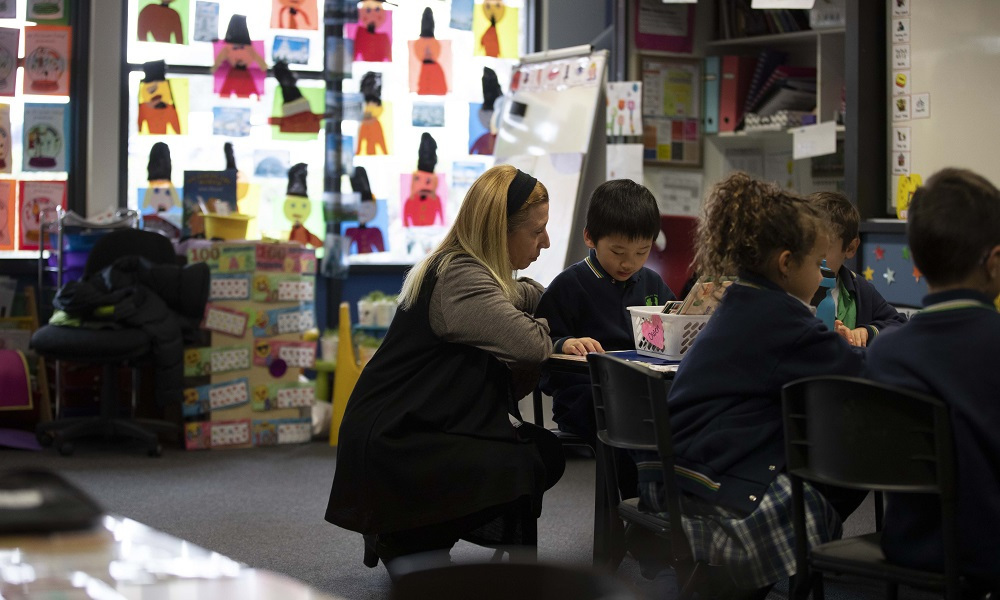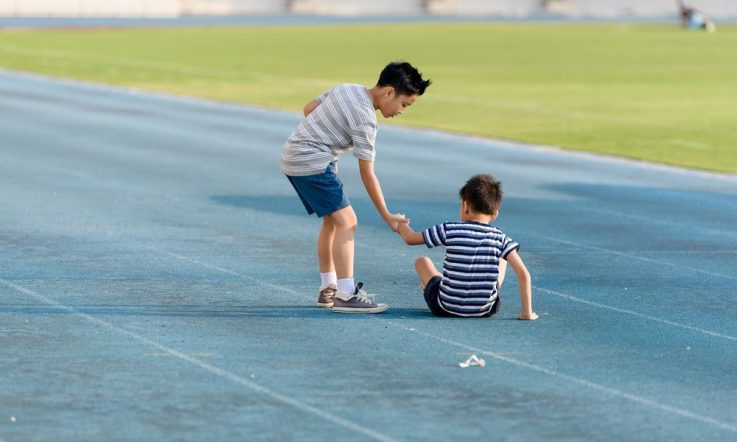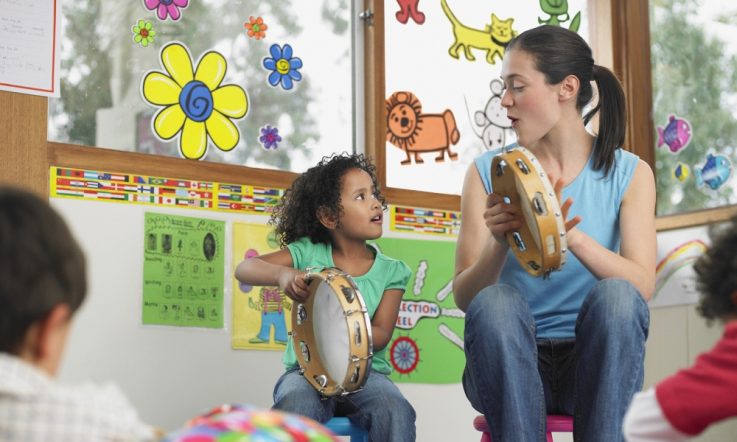Building a mentally healthy generation
Today's young people approach mental health differently to my generation.
Gen Z – which includes current school, TAFE and university students – are much more informed and prepared to talk about their mental health. In my capacity as Chair of Beyond Blue, I recently returned to my old school, Unley High, and heard students talk in a really sophisticated way about mental health in front of a whole school assembly.
That's a great improvement from the old days of suffering in silence. However, this new openness doesn't mean that everything's okay.
All of our young people are confronting new pressures, including social media and online lives.
At the same time, enough of the old stigma still exists, that some young people feel too afraid to speak up and ask for help. Even when they do, it can be hard in many communities to navigate the system and get access to the right services.
Teachers talk and think about these questions a great deal. In fact a recent survey commissioned by Beyond Blue and conducted by IPSOS Social Research Institute found that mental health issues are among the biggest concerns reported by teachers and early learning educators in their work with children and young people.
Eighty six per cent of respondents to the survey believe that depression, anxiety and other mental health problems are in the top three major health issues facing children and young people in Australia, ahead of obesity or substance abuse.
The statistics show why they are right to be concerned.
Every year, around one in seven Australian children and young people aged between four and 17 experience a mental health condition. That is equivalent to 560 000 children and young people (Australian Institute of Family Studies, 2017).
Tragically, suicide accounted for over one-third of deaths among those aged 15-24 in Australia in 2017.
For Aboriginal and Torres Strait Islander communities, the suicide rate of their young ones aged 5-17 is fivefold their non-Indigenous peers. This is a national tragedy that we were again reminded of last month with the reports that five young girls had killed themselves across Australia.
We know that half of all mental health conditions start in the formative years, emerging by the age of 14. Overlooked or left untreated, they can dramatically reduce a young person's chances of leading a happy, healthy, contributing life.
A new resource for educators
At Beyond Blue, we don't expect teachers to be counsellors, but we know every teacher ends up confronting mental health questions in their classroom at some point. In fact, teachers are often the first to notice. Forty per cent of Australian parents say their child's mental health issues were first detected in school.
But so many teachers end up relying on instinct, experience, empathy and goodwill to pick up signs that something is amiss. They may notice that a normally happy student is withdrawing from friends, is disengaged in class, or is acting out.
A teacher may know that something is not right, but doesn't know what's wrong. Or what to do about it.
That is why Beyond Blue developed Be You: a new national initiative that will give teachers the knowledge to know what to look out for, and the confidence they need to intervene. It will help them know how to make inquiries, and where to go and what to do if a young person is in need.
The initiative spans mental health promotion, prevention, early intervention and also provides a critical incident response service in the event of a suicide.
The Be You initiative has been designed for educators at every level – from those training to become a teacher to our most experienced principals, teachers and early learning staff.
Educators have told us this is what they need. They said they needed extra help with practical tools, advice and support when children and young people were struggling.
Schools and early learning services that sign up to Be You receive online tools, training and resources, as well as the 70-plus support team on the ground to help learning communities implement Be You at a whole-school level. Educators can also claim completion of Be You learning modules towards their professional development requirements.
It's free to every school and early learning service in Australia thanks to Commonwealth Government funding. Beyond Blue is leading it and we're working with Early Childhood Australia and headspace to deliver it.
Importantly, Be You will also help teachers and school staff to look after their own mental health and wellbeing, which we know can often be overlooked. We know that educators can get stressed, and they are no more immune to mental health issues than any other profession.
At Beyond Blue, we always say to people in charge: ‘you need to look after yourself too.' In a crisis – in the words of the airlines – you need to put the oxygen mask on first before you can help others.
There are 24 000 early learning services and schools across Australia and 4400 have signed up to Be You since it was launched on 1 November 2018. We are working right now to join up the rest.
We are confident Be You will make a difference. In fact, global mental health experts agree that one of the ‘best buys' to prevent mental illness and reverse the trend across the whole population is to invest in supporting early learning and school staff to support the mental health and wellbeing of children and young people.
I encourage you to take a look at the resources provided on the Be You website beyou.edu.au, and ask your school to join.
Hand in hand, and step by step, we can work together to build Australia's most mentally healthy generation.
References
Australian Institute of Family Studies. (2017). The Longitudinal Study of Australian Children Annual Statistical Report 2016. Melbourne: AIFS. Accessed at https://aifs.gov.au/sites/default/files/asr2016f.pdf



